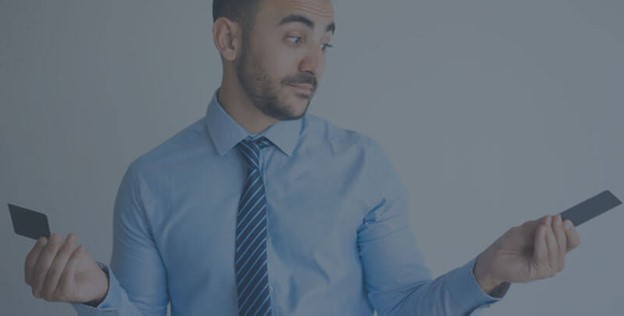When it comes to protecting your ID, debit cards are one of the worst ways to use your money.
Due to its direct connection to your bank account, anyone with your card information can withdraw all the funds from your account instantly.
The fact that debit cards do not have nearly as many protections as credit cards should be enough to scare you.
There are also protections that many consumers need. According to a report by iovation, a provider of digital intelligence for fraud prevention, credit and debit card fraud accounted for $4.5 billion in 2016 and is expected to drop to $1 billion by 2020 thanks to new computer chips on cards. Remember: for more tips on how to improve the quality of your life, visit www.credithealing.org.
Downsides of Debit Cards
When you’re shopping at a store and cannot find a bank or ATM, debit cards can be an easy way to get cash back. If you don’t want to carry cash around, a debit card can be used as cash.
With a debit card, you can also avoid paying interest on your balance if you don’t pay the bill in full each month. The debit card draws money directly from your bank account, while the credit card advances money on purchases for a month.
While a debit card only allows you to spend what you have, a credit card allows you to incur debt.
While many people think a debit card is safer than carrying cash, it can be more costly if a thief steals it or your personal information to empty your bank account using your debit card.
If you lose or steal your credit card, or if the information on it is stolen, you cannot lose more than $50 in unauthorized transactions. Similarly, if you report an ATM or debit card fraud within two business days, the Federal Trade Commission will investigate it. If you report the card missing before someone uses it without your permission, you won’t be liable for any unauthorized withdrawals. That’s good news.
But unauthorized use of a debit or ATM card can get much worse before you report it to the FTC, the agency says.
You could lose up to $500 in unauthorized transfers if you fail to report a debit card loss within 60 days after your statement is mailed to you. You risk unlimited loss if you don’t report it within 60 days. You could lose everything in that account as well as the unused portion of your maximum line of credit for overdrafts. If you wait more than two months to report the theft, the thieves could overdraw your account.
After you report the loss or theft of your debit card to the card issuer, you are not responsible for any additional unauthorized use.
Credit Card Protections
In the event that your credit card number or credit card is stolen, federal law provides a simple solution: You’re liable for $50 in authorized transactions. It comes with one important caveat – you need to contact your credit card company.
Occasionally, issuers won’t charge you $50 and are vigilant about being on the lookout for fraud and alerting customers when they see potential credit card fraud.
How Your Information is Stolen
Along with Uber and other data hacks that should make consumers concerned about their personal information being misused, criminals can hide skimmer devices inside gas station pumps to steal credit and debit card information.
You should use bank-affiliated ATMs when using your debit card, which can also be used at ATMs to withdraw cash from your bank account. In comparison to independent ATMs at gas stations and other businesses, they have a higher level of security. When you enter your information, be sure to cover the keypad.
Shred your bank and credit card statements to prevent thieves from pulling your data from your trash, and check your statements every day to make sure all the transactions are real.
More Ways to Protect Yourself
Use only a credit card if you can limit yourself to only spending what you can afford. Put your debit card away. Make cash withdrawals only with your debit card, since debit cards offer much less financial protection if stolen than credit cards.
If you don’t know the sender or the site, don’t open e-mails from them. In phishing emails, a fake website is often used to lure victims into giving up their card or bank account numbers, so never provide this information to anyone you do not trust.
Set up fraud alerts with your bank and credit card company. If you believe you have been the victim of identity theft, freeze your credit to prevent anyone from opening an account in your name.
Is your personal information on the dark web? Make sure your identity isn’t at risk!

